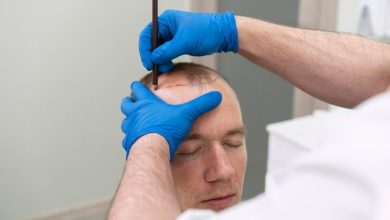When to See a Specialist About Leg Pain

Leg pain is a common disorder ranging from a dull ache to a sharp stabbing feeling. In severe cases, Memorial Area leg pain can impact your ability to walk or stand. It is a great idea to consult your doctor concerning leg pain if it worsens with walking, involves swelling, or doesn’t improve after a few days of home therapy. Also, you should consult your doctor if you are experiencing the following:
- Swelling in both your legs.
- Varicose veins that cause discomfort.
- Leg pain that worsens or persists for more than a few days.
Physical therapy for leg pain
You may gain from seeing a physical therapist if your leg discomfort is caused by an accident or a disease resulting in muscle weakness. They may give you tailored stretches and exercises to help you restore strength and range of motion and repair some types of injuries. Also, a physical therapist can help you evaluate if you need to use orthotic devices or other medical support equipment, such as foot braces, a cane, or a wheelchair.
The link between chest pain and leg pain
Chest discomfort and leg pain are two symptoms that rarely occur simultaneously. However, they can co-occur if a surgeon removes a vein graft from your leg during heart surgery or if you have peripheral artery disease.
Ways of preventing leg pain
It is critical to regularly take time to stretch the muscles before and after exercising to prevent leg discomfort due to physical activity. It is also useful to consume foods high in potassium, like bananas and chicken, to help prevent injuries to your leg muscles and tendons. You can also help prevent medical disorders that cause nerve damage in your legs by doing the following:
- Maintain a healthy weight.
- Quit smoking.
- Work out for 30 minutes daily, five times per week.
- Keep an eye on your cholesterol and blood pressure levels and take steps to keep them under control.
- Restrict your alcohol intake to one drink per day for women and two for men.
Additionally, talk to your doctor about possible methods of preventing the specific cause of your leg discomfort.
Outlook of leg pain
The extent to which your leg discomfort interferes with your life and how long it lasts is determined by the underlying problem. Certain types of leg pain relief, particularly those caused by a muscular strain or another less serious injury, can respond well to self-care approaches and do not require significant therapy. Conversely, leg discomfort caused by a more serious accident involving nerve or tissue damage might need continuous therapy or surgery.
Leg discomfort has various causes, and the indicators often overlap. You should consult a specialist if they persist, worsen, or make life difficult. Getting an accurate diagnosis and therapy for underlying conditions can prevent the pain from worsening and improve your long-term outlook. Call Expert Pain or book your appointment online to determine which leg pain treatments suit you.




